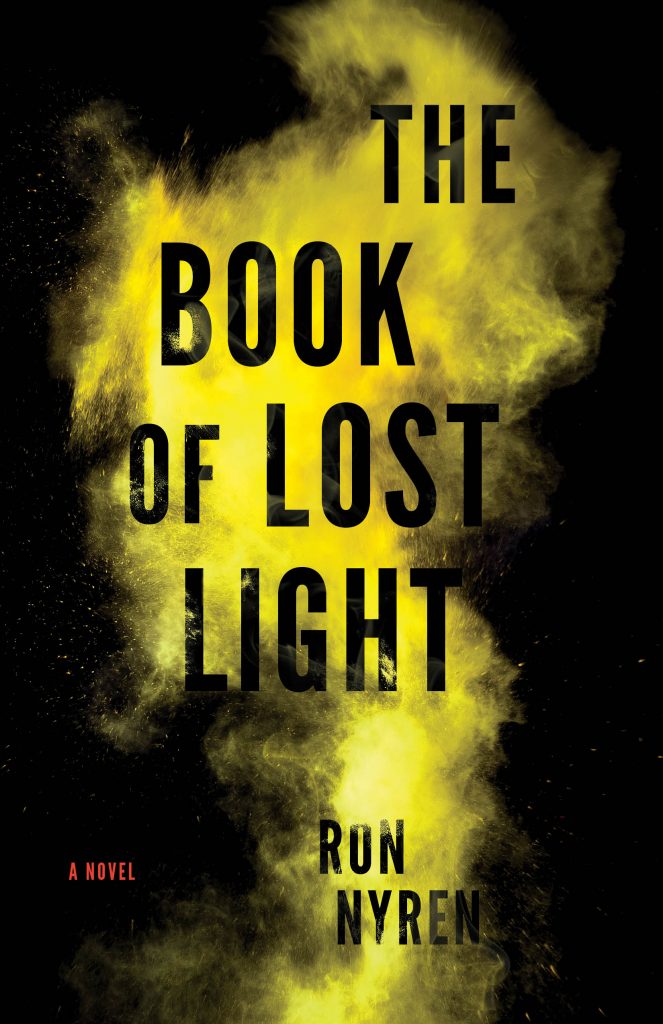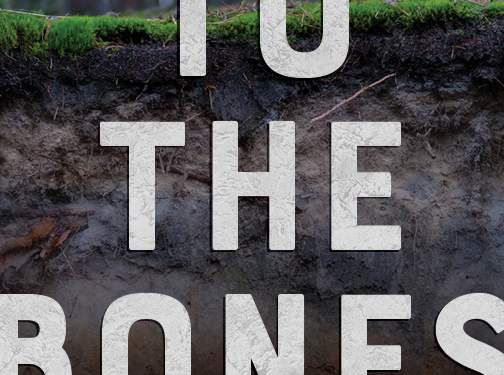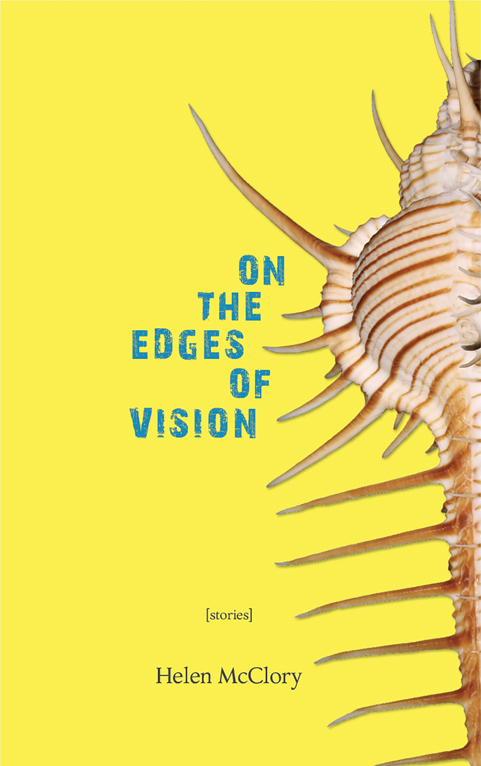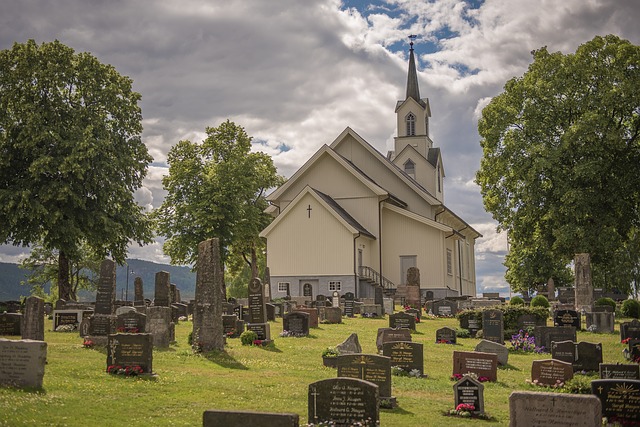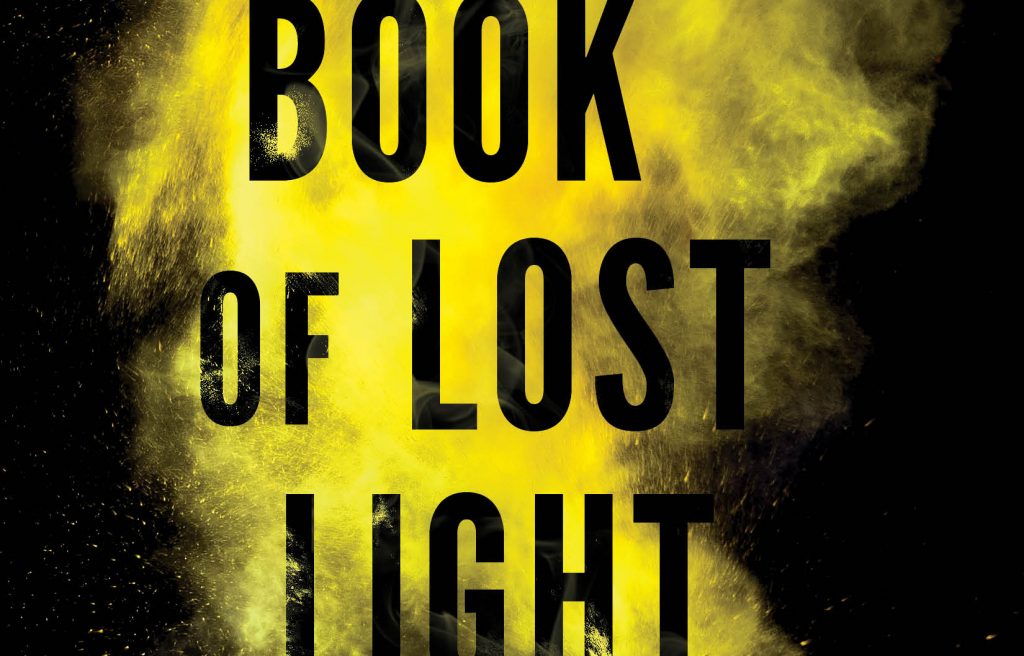
Welcome to another installment of If My Book, the Monkeybicycle feature in which authors shed light on their recently released books by comparing them to weird things. This week Ron Nyren writes about his debut novel, The Book of Lost Light, out now from Black Lawrence Press.
If The Book of Lost Light were a timepiece, it would be the carved wooden owl clock I kept on my desk in childhood, tiny numerals etched in place of eyelashes. The left eye tracked the hour, the right tracked the minute. At night, I listened to it whittle off seconds inside its head as I tried to fall asleep, wondering what it was thinking.
If The Book of Lost Light were an artists’ hangout, it would be Coppa’s, San Francisco, 1906: high ceilings, two dozen tables, red wallpaper covered with chalk drawings—a gigantic lobster standing on an island named Bohemia, an acrobat stretching out his tongue for spaghetti he dangled from his feet, Father Time balancing an hourglass on one finger and a wine bottle on the other—all contributed by the artists and writers who haunt the place for its cheap pasta. After society people started coming to eat and gawk at them, the restaurant became so packed that the artists could no longer get a table until Papa Coppa set one aside for them. Still, the artists come less frequently now, caught between their love for the restaurant and a desire not to feel like animals in a zoo. When they are absent, the patrons, mourning the lost opportunity to eavesdrop, console themselves with phrases the artists have written on the walls: “Why drag in Velasquez?” “You cannot argue with the choice of the soul,” “I have an idea that all sensible people will ultimately be damned.”
If The Book of Lost Light were a violin, you would pass an old house at twilight and hear a melody coming from within, all the lights blazing, and you would see that the door was open, and you would walk as silently as you could through the halls, looking into the library, the master bedroom, the kitchen, the parlor, hunting for the source of the tune, always thinking you’re getting close only to turn a corner and realize it must be behind that wall, down that staircase, or is it above you now, and how many floors does this house have, anyway?
If The Book of Lost Light were a long-lost amusement park, it would be Oakland’s Idora Park, which once housed thousands of refugees from the 1906 fires, lying at night on cots set up in the theater and in tents on the open grounds of the park, coming out in the morning to peer at the silent rides: the merry-go-round, the roller coaster, the Mountain Slide, the Tickler, the Trip through Hades. They ate in the picnic grounds and they wandered in bafflement through the zoo, blinking at the orangutans and the zebras, tilting backward to watch in wonder as a giraffe ate leaves.
If The Book of Lost Light were a sonata, it would be Beethoven’s Piano Sonata No. 14 in C sharp minor, Opus 27, the so-called Moonlight Sonata, the one Beethoven dedicated in 1802 to his pupil the Countess Giulietta Guicciardi, with whom he had fallen in love. I learned to play it when I was a few years younger than Giulietta, taking piano lessons from Aunt Muriel, my mother’s mother’s sister, who lived a 20-minute drive away in the next town over, my mother and I piling into the car as soon as I came home from school so we could arrive in time. My great-aunt encouraged her students to tape their pieces once they’d learned them; we had to remember to call ahead when I was ready to record, so that she could get the recorder’s batteries out of the freezer and warm them up. Beethoven began teaching Giulietta in 1801, when he was 30 and she was 17, and he soon asked her to marry him. One of her parents forbade the marriage, owing to Beethoven’s lack of fortune, lack of rank, lack of steady employment, and increasing deafness. Giulietta soon married Count von Gallenberg, an amateur composer for the ballet. My Aunt Muriel told me not to slow down when I approached a passage that I knew I was likely to foul up; she said that if I knew I was about to make a mistake, I should proceed forcefully toward it, I should not be afraid, she said, to “sing it out loud!”
If The Book of Lost Light were a 1900s-era camera shop, you would walk through the shelves of Higgins’ Photo-Mounter Paste, Wynne’s Infallible Exposure Meters, Kodak Dry Mounting Tissue, and Eastman’s Mezzo Tone print-out paper. You would sense lenses tucked in darkness in their boxes; toning tablets ready to be dissolved in water; printing papers waiting to be slid into the chemicals that are stored in jars just a few shelves away. You would feel the blankness of the film, stacked in preparation for the moment light would strike and give their surfaces coherence and meaning, fixing them as reverse copies of the world.
Ron Nyren’s fiction has appeared in The Paris Review, The Missouri Review, The North American Review, Glimmer Train Stories, Mississippi Review, Fourteen Hills, Able Muse, Dalhousie Review, 100 Word Story, and elsewhere. His stories have been shortlisted for the O. Henry Awards and the Pushcart Prize. He is the coauthor, with his spouse and writing partner Sarah Stone, of Deepening Fiction: A Practical Guide for Intermediate and Advanced Writers, and a former editor of Furious Fictions: The Magazine of Short-Short Stories. Ron earned his MFA in creative writing from the University of Michigan. He is the recipient of a major Hopwood award, the Farrar Prize in Playwriting, the Roy W. Cowden Memorial Fellowship, and the Andrea Beauchamp prize in short fiction. A former Stegner Fellow, he teaches fiction writing for Stanford University. Follow him on Twitter at @rnyren.


